
Sir Raymond Douglas Davies is an English musician. He was the lead vocalist, rhythm guitarist and primary songwriter for the rock band the Kinks, which he led with his younger brother Dave on lead guitar and backing vocals. He has also acted in, directed and produced shows for theatre and television. Known for focusing his lyrics on rock bands, English culture, nostalgia and social satire, he is often referred to as the "Godfather of Britpop", though he disputes this title. He was inducted into the Rock and Roll Hall of Fame as a member of the Kinks in 1990. After the dissolution of the Kinks in 1996, he embarked on a solo career.
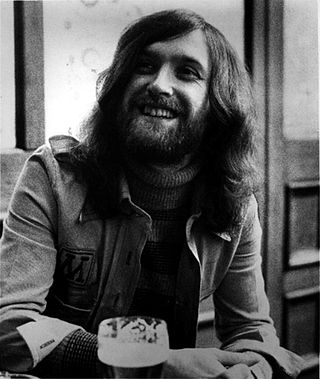
David Russell Gordon Davies is an English guitarist, singer and songwriter. He was the lead guitarist and backing vocalist for the English rock band the Kinks, lead by his older brother Ray. Davies also sometimes undertook writing and/or lead vocals duties within the band, for example on songs such as "Death of a Clown", "Party Line", "Strangers" and "Rats". He has also embarked on a solo career, releasing several singles during the late 1960s and has since released eight solo albums.

Muswell Hillbillies is the tenth studio album by the English rock group the Kinks. Released on 24 November 1971, it was the band's first album for RCA Records. The album is named after the Muswell Hill area of North London, where band leader Ray Davies and guitarist Dave Davies grew up and the band formed in the early 1960s.

Lola Versus Powerman and the Moneygoround, Part One, commonly abbreviated to Lola Versus Powerman, or simply Lola, is the eighth studio album by the English rock band the Kinks, released on 27 November 1970. A concept album, it is a satirical appraisal of the music industry, including song publishers, unions, the press, accountants, business managers, and life on the road. It marked the group's expansion to a five-piece with the addition of keyboardist John Gosling.

Michael Charles Avory is an English musician, best known as the longtime drummer and percussionist for the English rock band the Kinks. He joined them shortly after their formation in 1964 and remained with them until 1984, when he left amid creative friction with guitarist Dave Davies. He is the longest-serving member of the band, apart from the Davies brothers. He is also the most prolific member, again apart from the Davies brothers, who has played on twenty studio albums or nearly all of the band's creative output.

The Kinks were an English rock band formed in London in 1963 by brothers Ray and Dave Davies. They are regarded as one of the most influential rock bands of the 1960s. The band emerged during the height of British rhythm and blues and Merseybeat, and were briefly part of the British Invasion of the United States until their touring ban in 1965. Their third single, the Ray Davies-penned "You Really Got Me", became an international hit, topping the charts in the United Kingdom and reaching the top 10 in the United States.

"Apeman" is a 1970 song by the English rock band the Kinks. It was written by Ray Davies and appears on the album Lola Versus Powerman and the Moneygoround, Part One. Written as a call to return to nature amidst the crowding and industry of the city, the song features calypso stylings. Like its predecessor, "Lola", it had to have a lyric re-dubbed for commercial release.

Percy is a 1971 film soundtrack for the British comedy film Percy performed by the English rock group the Kinks with additional orchestral arrangements conducted by Stanley Myers. It was released as the band’s ninth official studio album. The songs were written by Ray Davies and include both standard rock/pop songs and instrumental numbers.

State of Confusion is the twentieth studio album by the English rock group the Kinks, released in 1983. The record features the single "Come Dancing", which hit number 6 on the Billboard Hot 100 and was one of the band's biggest hit singles in the United States, equaling the 1965 peak of "Tired of Waiting for You". The album itself was a major success, peaking at number 12 on the Billboard albums chart. The album was certified gold in Canada by August 1983. It was the last Kinks album on which drummer Mick Avory appeared as a full member of the band.
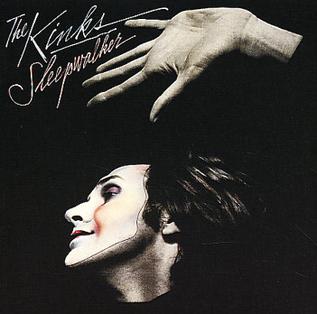
Sleepwalker is the sixteenth studio album by the English rock group, the Kinks, released in 1977. It marked a return to straight-ahead, self-contained rock songs after several years of concept albums. It is the first album in what critics usually call the "arena rock" phase of the group, in which more commercial and mainstream production techniques would be employed. The album also marks the last appearance of bassist John Dalton, who left the band during the recording sessions. Dalton plays bass on all songs on the album except for "Mr. Big Man". The lineup of the Kinks would be trimmed down significantly in 1977 following the album's release, as the brass section and backup singers were removed and the band returned to a standard rock band outfit.
"Got to Be Free" is a song written by Ray Davies and performed by British rock band the Kinks. It was released on their 1970 LP Lola versus Powerman and the Moneygoround, Part One, which included the Top 10 hit song "Lola". "Got to Be Free" plays a key role in the concept album, as the album borrows its first verse as an introduction, and closes with the full song. The song was also used in the first of the BBC's Play for Today series The Long Distance Piano Player (1970), which featured the song's own writer, Ray Davies, in the lead role.
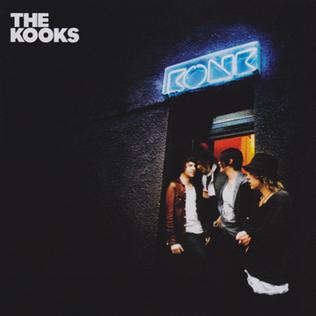
Konk is the second album by British indie rock band the Kooks, released on 14 April 2008 on Virgin Records. Produced by Tony Hoffer, the album is named after the London studio where it was recorded, which is the property of Ray Davies. This was the last album to feature original bassist Max Rafferty.
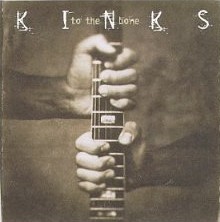
To the Bone is a 1994 live album by the Kinks. Recorded partly at Konk Studios with a small audience, and partly during their 1993 American tour and the 1994 UK tour, it was reissued in an expanded edition in 1996 with two new studio tracks added. To the Bone was the band's final release before their breakup in 1996.

"20th Century Man" is a song recorded by the English rock band the Kinks. It was released as a single in December 1971 from the band's 1971 LP Muswell Hillbillies, an album with blues and country roots. It centered on such themes as poverty, housing development, alienation, the welfare state, and other troubles of the modern world.
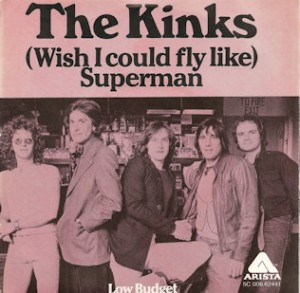
"(Wish I Could Fly Like) Superman" is a song written by Ray Davies that was first released on the Kinks' 1979 album, Low Budget. The song, inspired by Superman: The Movie, employs a disco beat and lyrics that describe the singer's wish to be like the fictional character Superman. The song's disco style was created as a response to Arista Records founder Clive Davis's request for "a club-friendly record", despite Ray Davies' hatred of disco.

"Muswell Hillbilly" is a track recorded by British rock band The Kinks. It served as the title track to their 1971 album, Muswell Hillbillies.

Sunny Afternoon is a jukebox musical with music and lyrics by Ray Davies and a book by Joe Penhall. Based on the formation and career of the English rock band The Kinks, the musical was commissioned and produced by Sonia Friedman and made its world premiere in 2014 at the Hampstead Theatre, London, before transferring to the West End's Harold Pinter Theatre. Featuring songs by The Kinks, Sunny Afternoon includes their hits such as "Lola", "Waterloo Sunset", "You Really Got Me" and the musical's title song, "Sunny Afternoon".

Americana is an album by English rock musician Ray Davies, released by Legacy Recordings in April 2017. Like Davies' 2013 book of the same name, it explores his lifelong fascination with the music and culture of the United States, and his experiences of touring and living there. The album features contributions from members of American country rock band the Jayhawks.
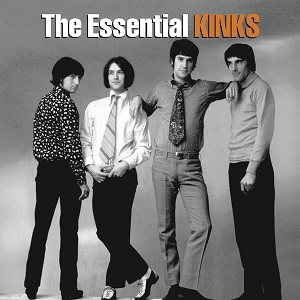
The Essential Kinks is a two disc compilation album by English rock band the Kinks, released on 14 October 2014, on Legacy Records, a division of Sony Music Entertainment.
"So Mystifying" is a song written by English musician Ray Davies, first recorded by his band the Kinks for their 1964 debut album Kinks. It appears as the second track on side one, following "Beautiful Delilah", and is the first track on the album on which Ray Davies performs the lead vocals. The best known version of the song was recorded by Swedish rock group Hep Stars, whose version of the song reached the top-five on both Kvällstoppen and Tio I Topp in 1965.



















